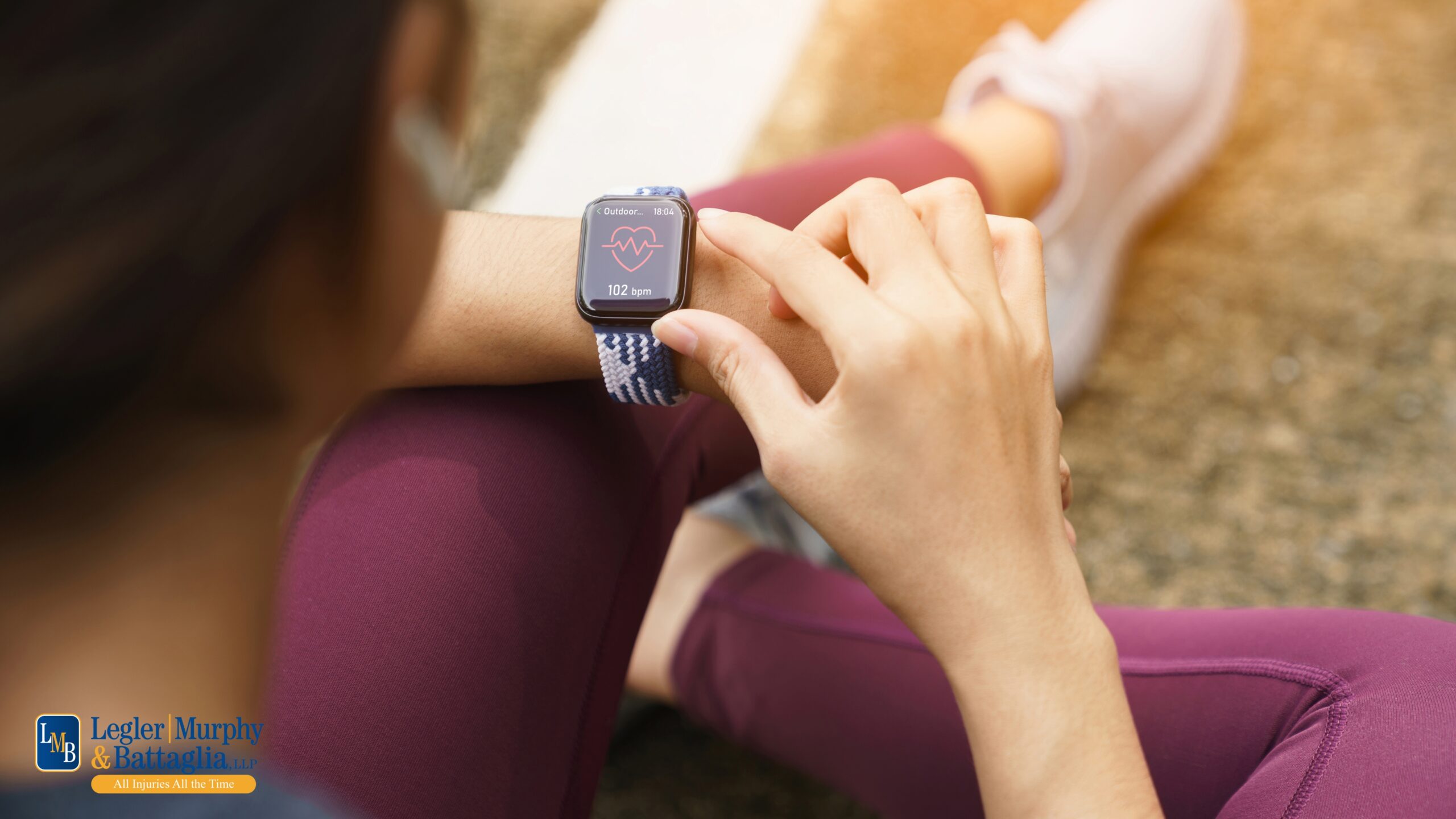In today’s digital age, wearable technology like the Apple Watch has become an integral part of our lives. These devices track everything from our daily steps to our heart rate, sleep patterns, and location. While this data can be incredibly useful for personal health and fitness, it can also become a point of contention in legal disputes, particularly in personal injury lawsuits. Recently, a case has emerged where the defense attorney is requesting two years’ worth of my client’s Apple Watch data. This request opens up a complex discussion about the intersection of technology, privacy, and the law.
The Case at Hand
Imagine a scenario where a person is involved in a car accident and suffers significant injuries. They decide to file a personal injury lawsuit against the other party involved, seeking compensation for medical expenses, lost wages, and pain and suffering. As the legal process unfolds, the defense attorney makes a surprising request: they want access to two years’ worth of the plaintiff’s Apple Watch data.
Why the Data?
The defense argues that the Apple Watch data could provide critical insights into the plaintiff’s physical activity levels, sleep patterns, and overall health both before and after the accident. By analyzing this data, the defense aims to determine whether the plaintiff’s injuries are as severe as claimed and whether they have genuinely impacted their daily life and well-being. For instance, if the data shows that the plaintiff was highly active before the accident but significantly less so afterward, it could support their claim. Conversely, if the data reveals little change in activity levels, the defense might argue that the injuries are being exaggerated.
Legal Precedents and Privacy Concerns
The request for such detailed personal data is not without precedent. In recent years, courts have increasingly recognized the potential value of digital evidence from wearable devices in personal injury cases. However, this practice raises significant privacy concerns. Accessing two years’ worth of Apple Watch data means delving into a vast amount of personal information, including sensitive health data, location history, and potentially even interactions with other smart devices.
Relevance and Proportionality in Legal Requests
From a legal standpoint, the plaintiff’s attorney would likely challenge the request on the grounds of relevance and proportionality. They would argue that the request is overly broad and intrusive, potentially violating the plaintiff’s right to privacy. Courts typically weigh the relevance of the requested information against the invasion of privacy it entails. If the data is deemed essential to the case, the court may allow access, but often with strict limitations to protect the plaintiff’s privacy.
Navigating the Legal and Ethical Maze
For plaintiffs, the prospect of having their personal data scrutinized can be daunting. It’s essential to understand the legal implications and to work closely with their attorney to ensure their rights are protected. Here are a few key considerations:
Relevance and Scope
Plaintiffs should insist that any request for data is narrowly tailored to the specific issues at hand. Broad requests that capture unnecessary personal information should be challenged.
Data Accuracy
It’s crucial to ensure that the data being provided is accurate and has not been tampered with. Both parties should agree on the methodology for data extraction and analysis.
Privacy Protections
Courts may impose protective orders to limit the use and dissemination of personal data. Plaintiffs should advocate for such protections to safeguard their privacy.
Legal Representation
Having experienced legal representation is vital. Attorneys specializing in personal injury and digital evidence can navigate the complexities of such cases, balancing the need for relevant evidence with the protection of their client’s privacy.
Potential Implications for Future Cases
The request for two years’ worth of Apple Watch data in a personal injury lawsuit highlights the evolving role of technology in the legal realm. As wearable technology becomes more prevalent, similar requests are likely to become more common. This trend will necessitate a careful balancing act between leveraging valuable digital evidence and protecting individuals’ privacy rights.
Evolving Legal Standards
As courts continue to encounter cases involving wearable technology data, legal standards and precedents will evolve. Attorneys must stay abreast of these developments to effectively represent their clients.
Technological Advances and Data Interpretation
With advances in technology, the amount and type of data collected by wearable devices will expand. This will pose new challenges in terms of data interpretation and the potential for misuse or misrepresentation in legal contexts.
Ethical Considerations for Legal Professionals
Legal professionals must navigate not only the legal but also the ethical implications of using wearable technology data in personal injury lawsuits. This includes considering the potential impact on their client’s privacy and the broader implications for society.
Balancing Justice and Privacy
Achieving a balance between the pursuit of justice and the protection of individual privacy will be a continuing challenge. Legal professionals must advocate for fair and reasonable use of digital evidence while safeguarding their clients’ rights.
Professional Responsibility
Attorneys have a professional responsibility to ensure that any use of wearable technology data in legal proceedings is conducted ethically and within the bounds of the law. This includes maintaining transparency with their clients and opposing overly broad or intrusive data requests.
Conclusion
The request for two years’ worth of Apple Watch data in a personal injury lawsuit underscores the complex interplay between technology, privacy, and the law. While such data can provide valuable insights, it also raises significant privacy concerns. Plaintiffs and their attorneys must carefully navigate these issues, ensuring that any requests for personal data are both relevant and proportionate. As wearable technology continues to advance, the legal community will undoubtedly face more such challenges, making it essential to strike a balance between the pursuit of justice and the protection of individual privacy.
FAQs
How can Apple Watch data impact a personal injury lawsuit?
Apple Watch data can provide insights into a plaintiff’s physical activity, health, and lifestyle both before and after an injury, which can be used to support or refute claims about the impact of the injury.
What types of data from an Apple Watch are typically requested in legal cases?
Data requests may include physical activity levels, heart rate, sleep patterns, location history, and other health-related metrics tracked by the Apple Watch.
What privacy concerns arise from using wearable technology data in court?
The use of wearable technology data in court raises concerns about the invasion of privacy, as it involves accessing detailed personal and health information that may not be directly relevant to the case.
How do courts determine the relevance of wearable technology data in legal cases?
Courts weigh the relevance of the data against the invasion of privacy, considering whether the information is essential to the case and imposing limitations to protect the individual’s privacy where possible.
What steps can plaintiffs take to protect their privacy in legal disputes involving wearable technology data?
Plaintiffs can insist on narrowly tailored data requests, ensure data accuracy, advocate for privacy protections, and work with experienced legal representation to navigate these issues.
What are the future implications of wearable technology data in the legal field?
As wearable technology becomes more prevalent, the legal field will face increasing challenges in balancing the use of valuable digital evidence with protecting individual privacy rights.



